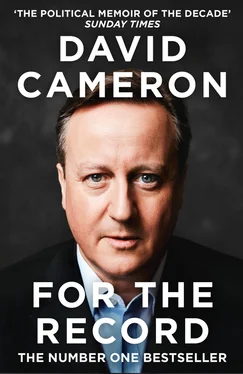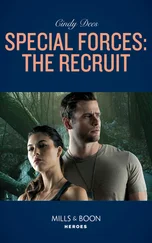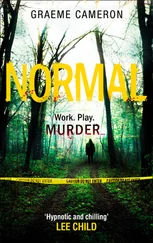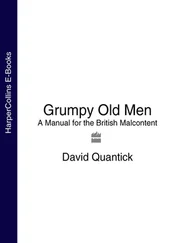I phoned Nick Clegg from our party’s base, now known as Conservative Campaign Headquarters (CCHQ). He was keen to progress. He told me his four negotiators, and I named mine. William Hague had morphed from a much-caricatured party leader into a heavyweight shadow foreign secretary and an indispensable sage in my inner team. He would be joined by George Osborne, Ed Llewellyn and Oliver Letwin, making up the perfect quartet to secure a deal.
The first talks took place that evening in the Cabinet Office at 70 Whitehall – tantalisingly, tauntingly close to 10 Downing Street, where Gordon Brown was still holding firm. It was a key decision not to include civil servants in the discussions, as we thought that would enable us to get a deal without getting lost in problems and details.
Ed would call and update me with his usual cloak-and-dagger whispers that I could only half-hear. It turned out the Lib Dem team was pleasantly surprised by our concessions, and our team was pleasantly surprised at their willingness to go for a full coalition.
From then on there was a permanent pack outside 70 Whitehall: cameras, reporters, protesters, and the odd bemused tourist. The world was watching too. The pound had plummeted that day to a one-year low, and the markets wanted reassurance.
It was like waiting for a new Pope. When would the next signal come? What colour would the smoke be? Blue and yellow? Red and yellow? I had absolutely no idea.
The next morning, Saturday, I woke up at our home in North Kensington feeling positive. I weaved through the throng of cameras outside my house and went to buy the papers from the local shop. ‘Squatter Holed Up in No. 10’, said the Sun , depicting Brown as a fifty-nine-year-old man refusing to leave the central London property.
In an awkward twist, I came face-to-face with Brown and Clegg later that day as we marked the anniversary of VE Day. It was sixty-five years since the veterans lining Whitehall in their berets and bowler hats had liberated Europe and democracy had triumphed. And here the three of us were, the embodiment of democracy in its messiest form. As a testament to the confusion, some of the veterans even greeted me as ‘Prime Minister’.
Before we were led to the Cenotaph to lay our wreaths, Brown started to engage Clegg about the discussions they had clearly already begun over the telephone. It felt inappropriate. ‘He’s still having a go at me,’ Clegg whispered to me.
Our own conversation came later in the day. It wouldn’t be our first interaction. Purely by accident, we had a good talk at the opening ceremony of the new Supreme Court in 2009. While Brown and the Queen undertook the formalities, Nick and I talked politics, families and life. He was only three months younger than me, and our lives were very similar. We shared a liberal outlook and an easy manner. I left thinking, what a reasonable, rational, decent guy.
As we sat down that Saturday night in a dingy room in Admiralty House, one of the government buildings on Whitehall, we discussed how we’d given the press the slip. Underground car park, I said. Switching cars outside the Home Office, he said.
We went through our two manifestos, and talked about compromises. But the detail was for the negotiators. For us, it was about the bigger picture – and it was about trust. We agreed that we could and should work together. There was a mutual recognition that we would both be judged forever on whether we could make something unprecedented work at a time when our nation needed it most.
We were both taking a big risk. For me, the risk would be angering those in my party who would not tolerate being in coalition, and might turn against me. But given the history of coalitions for minor parties, he was taking a greater risk.
‘If we go for this I’ll make it work,’ I said to him. ‘I’ll make the deal a success, and I’ll make it last.’ I meant it, and I think he could see that.
Not only were the negotiations going well, but I felt confident in our position. If anyone had won the election, we had. We were the open ones, the democratic ones, the ones who were reading the national mood and responding to the public’s wishes. A full coalition remained the lead option. A confidence and supply deal was just a fallback. That’s why my mood the next day, Sunday, was calm.
Because I wasn’t in the negotiating team, I tried to do some of the ordinary things I would do on a Sunday to get a sense of normality back into my life. I played tennis. I went shopping. I cooked for Sam and the kids while getting updates from that day’s negotiations.
The updates were relatively reassuring. Crucially, it seemed the Lib Dems were willing to support a programme of spending cuts, including immediate ones. Without that, it would have been hard to form a stable government with clear purpose. The Budget affects every policy decision, and you have to see eye-to-eye on that. But given their voter base among public-sector workers, particularly in education, this willingness would damage the Lib Dems enormously.
In the early stages, the decisions for us weren’t as difficult. We dropped our pledge to cut inheritance tax, something we could reluctantly but easily sacrifice. The hard stuff was still to come.
With things going well, I held a drop-in session for MPs. Some were less than keen on the idea of coalition. A group of backbench Tory MPs who tended to be on the anti-modernising end of the spectrum – I referred to them as ‘the usual suspects’, because you were never surprised if they rejected any move to modernise, or rebelled on votes in Parliament – urged me to go into minority government and call a general election as soon as possible. Others simply said I should let the opposition parties form a rainbow coalition. I was undeterred: a full coalition was the right thing to do.
But when I met Clegg in my office that evening, something had changed. Though the negotiations were progressing, voting reform remained an obstacle. I had been offering an inquiry, but that wasn’t enough for the Lib Dems, and the teams were now talking about the whole deal only in terms of confidence and supply. Perhaps that was the best we could do. I signed off on the wording of such a deal that Sunday night.
Then, at 11 p.m. I called Clegg from my Commons office. He’d had a meeting with the prime minister. Brown had made an offer on voting reform – to hold a referendum on implementing the Alternative Vote (AV) system, a sort of halfway house between the current first-past-the-post system and full proportional representation, where voters would rank candidates. AV did avoid the biggest problems with PR. Under it, every constituency would still have an MP, and every MP a constituency. But my party would find it extremely hard to stomach, and so would I. Most importantly, I didn’t think the public wanted it either.
However, I realised that if we were asking the Lib Dems to make a political move they wouldn’t have imagined possible, we would have to consider things we didn’t imagine possible. Legislating directly for AV, of course not. But a referendum? That might be possible. After all, if one of my primary objections to AV was that the public didn’t want it, a referendum would test that.
That late-night phone call had been set up by our aides to confirm that a full coalition was off the table, and we were now only looking at confidence and supply. But Clegg and I both went off script. ‘Why are we doing this?’ we asked each other. We agreed that we should try again to go the whole hog. I said I would have another look at an AV referendum, and push my party towards a full coalition.
By Monday, though, I was utterly dejected. The soaring hopes of the morning before had been trampled, as the Lib Dems signalled their annoyance at the lack of movement on voting reform.
Читать дальше












